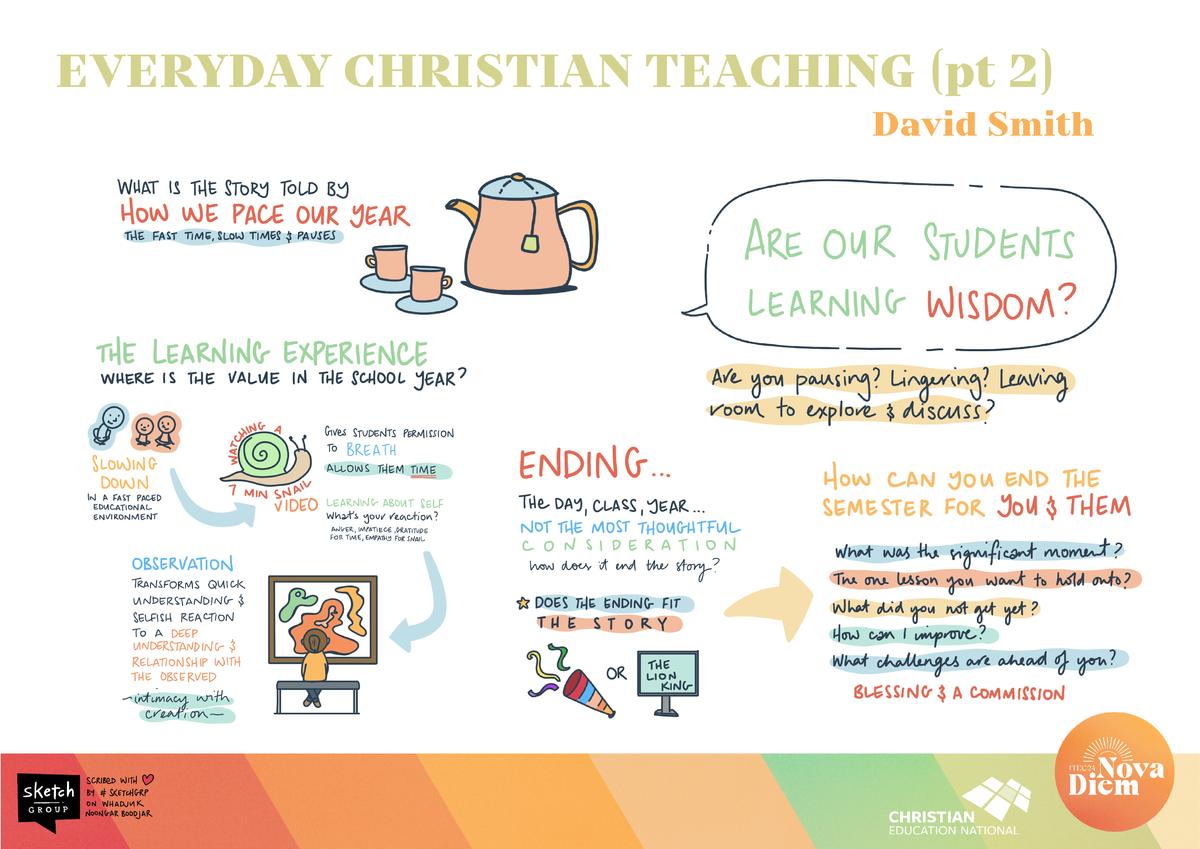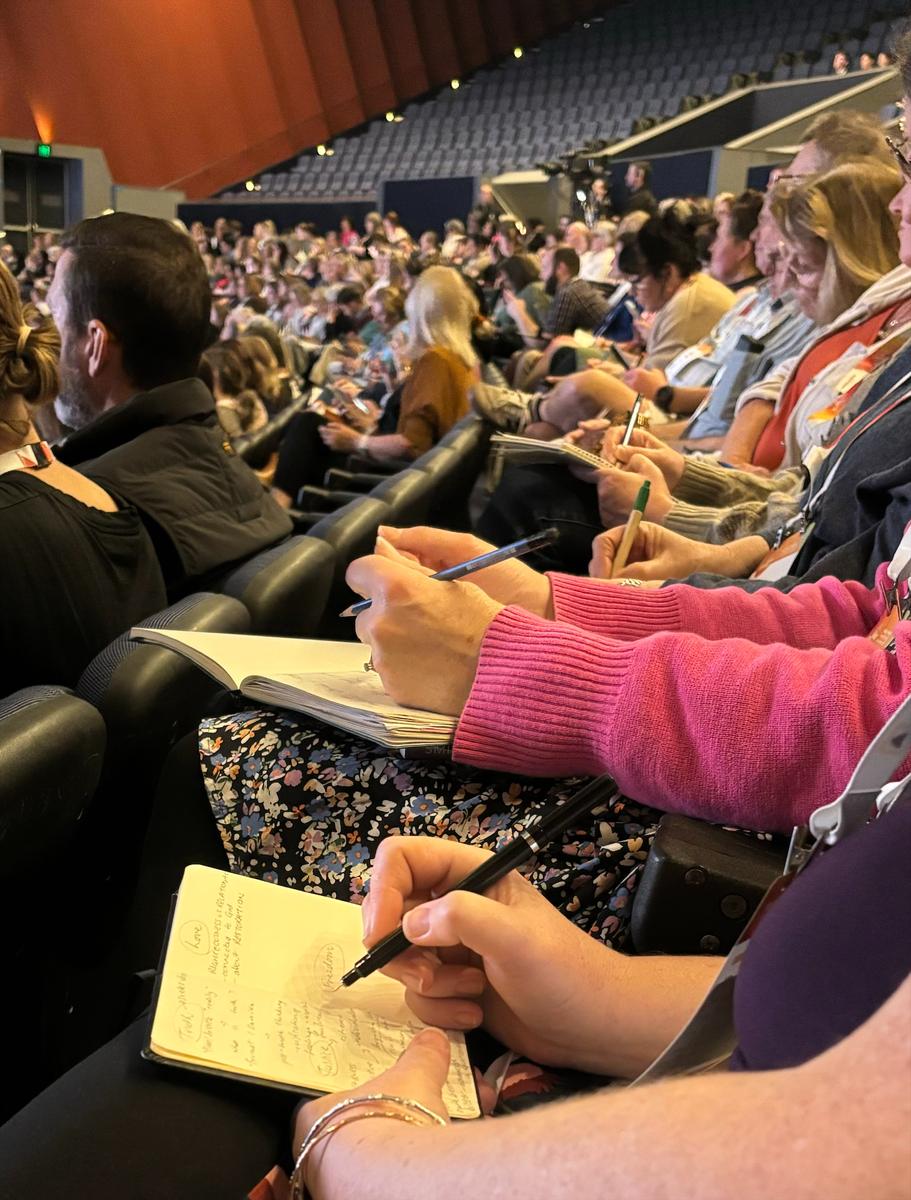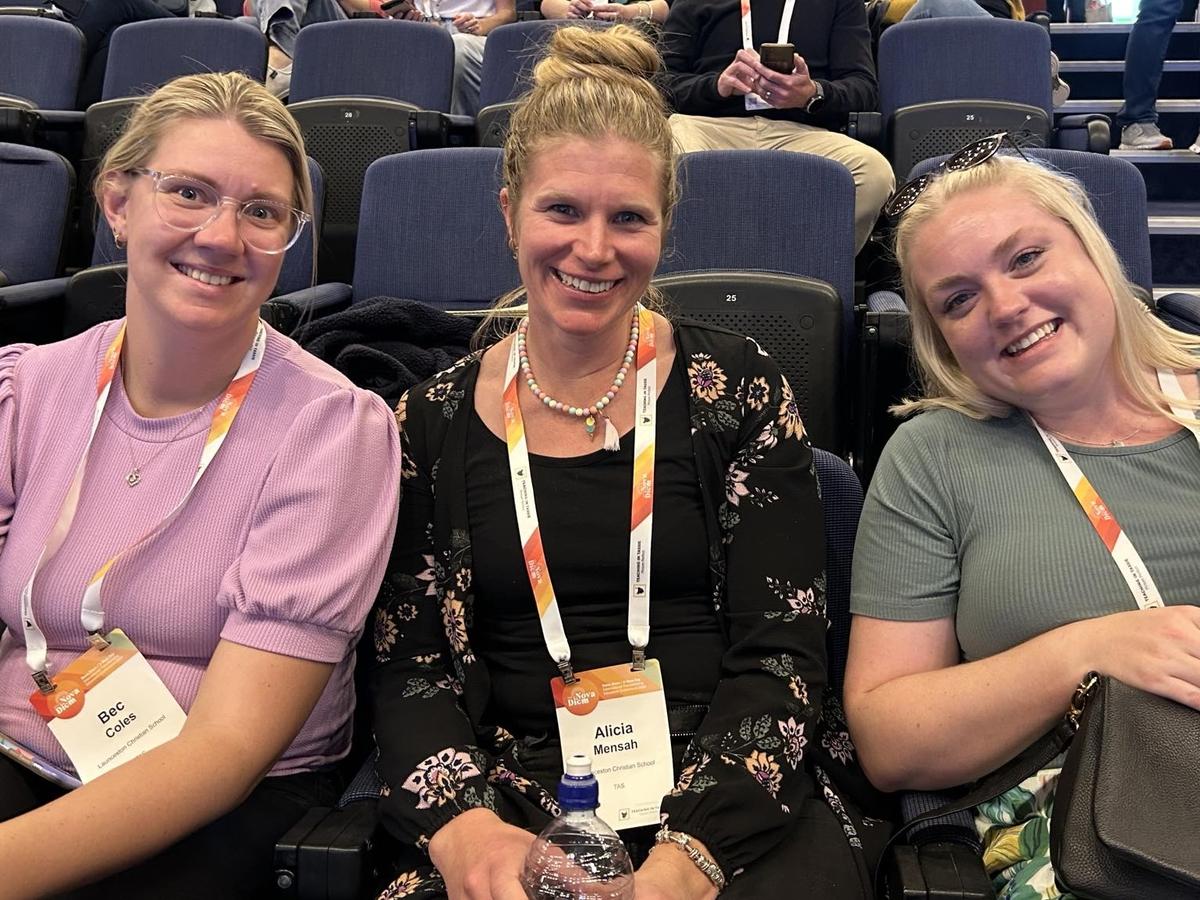From the Principal

ITEC 2024
Recently 75 of our staff and board members attended the amazing International Transforming Education Conference (ITEC) in Perth, WA. This was a fantastic event that focussed on Biblical education, spiritual nourishment and practical application. It also provided our LCS attendees an opportunity to talk and share with a wide variety of CEN teachers, leaders and staff from across Australia. I also appreciated the time that our LCS crew were able to spend together in fellowship. Thank you to the LCS board, who generously made funds available for so many of us to attend. It is an investment that will have significant benefits for our students, teachers and the wider LCS community.
Over previous and upcoming Heralds I am highlighting some of the core messages of the conference, and my hope is that you will be encouraged as we all were by the powerful messages, and the potential impact that this will have on our school community and lives.
David Smith - Everyday Christian Teaching (pt2)
What story is told by how we pace our year? Or class or life?
In his second presentation, keynote speaker David Smith continued his exploration of Everyday Christian Teaching. In particular, he asked what story we tell as a school and as educators by the pacing of our year. Fast. Slow. Pause.
I encourage you to look closely at the diagram above as it relates to my notes that follow. This was created live by an artist as each of the speakers presented.
Pausing
Like in nature and life, there is rhythm in a class. The speed of teaching and learning often runs fast and then slow. David asked what would happen if we were intentional about the pace of classroom culture:
- How would incorporating pause shift students' understanding of life and learning?
- How did we become people too busy to slow down?
- How can we create a school day that allows time for rest?
Example: David shared that he often asks his students to watch the Porya Hatami Snail 7-minute YouTube clip (below). I would encourage you to do so as well. He shared that his students often had very polar reactions after watching, some finding it peaceful and some found it to be an agitating exercise. I wonder, when did we become too busy to slow down and how is this impacting our classroom?
Wisdom
David encouraged teachers to rest, pause, as varied pace opens up space for enquiry. When teachers take their students outside the classroom, or they linger on a topic and allow time for discussion and exploration, it follows that there is much more opportunity for students to develop deep and intimate knowledge. As in the example above, with the snail, a winding down of pace encourages interaction with others and creation.
We want to foster the kind of wisdom detailed in Proverbs 8:
- Enjoy God.
- Enjoy creation.
- Enjoy people.
takeaway: We need to start interviewing or surveying students about the most transformative part of their learning (there are many ways to do this - in-class/exit survey/random selection/volunteers).
Ending
The way we end a class, a day, a year is all too often a reaction to running out of time. Endings need to be intentional and fit the story we are telling as a school community. Endings matter!
- What message do end-of-unit tests send to students?
- How do I find an ending that fits the story of student learning?
- How do I end with a celebration of learning?
A church service often ends with a liturgy, a blessing or a commission. Unfortunately, many classes tend to end with a judgement and dismissal.
takeaway: What if we finished a class or unit with a blessing and a commission instead of simply a grade? Let's never forget what is important, to take a moment to consider what students are interpreting from how we end a unit.



